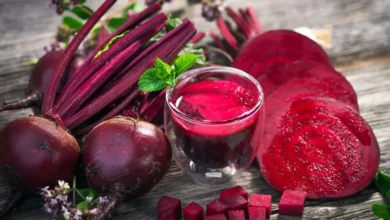The Connection Between Gut Health and Your Immune System
Did you know that around 70% of your immune system resides in your gut? While it might sound surprising, your digestive system does far more than just process food—it plays a critical role in defending your body against harmful invaders. In recent years, science has uncovered a powerful link between gut health and immune function.
If you’re aiming to stay healthier, avoid frequent illnesses, and reduce inflammation, your gut should be one of your top priorities. In this article, we’ll explore how gut health and immunity are connected, and how you can strengthen both through smart nutritional choices.
Understanding the Gut Microbiome
Inside your digestive system lives a vast community of microorganisms, known as the gut microbiome. This includes bacteria, fungi, viruses, and other microbes—many of which are beneficial and necessary for good health.
A balanced gut microbiome helps with:
- Breaking down and absorbing nutrients
- Producing certain vitamins (like vitamin K and some B vitamins)
- Regulating inflammation
- Supporting the lining of your intestines
- Communicating with your immune system
When your gut microbiome is diverse and healthy, your body is better equipped to defend itself against infections and inflammation.
The Gut-Immune System Relationship
The gut and immune system are closely connected through the gut-associated lymphoid tissue (GALT). This tissue monitors and responds to pathogens in the intestines, acting as a frontline defense system.
Here’s how a healthy gut supports immunity:
- Strengthens the intestinal barrier: A strong gut lining prevents harmful microbes from entering the bloodstream.
- Trains immune cells: Beneficial bacteria help train immune cells to recognize harmful invaders versus harmless substances.
- Reduces inflammation: A balanced microbiome keeps the immune system from overreacting, reducing the risk of chronic inflammation.
On the flip side, when the gut is imbalanced—a condition known as dysbiosis—it can lead to inflammation, allergies, autoimmune diseases, and frequent infections.
Signs of an Unhealthy Gut
Your body often gives clues when your gut health is off. Common signs include:
- Frequent colds or infections
- Bloating or digestive discomfort
- Food intolerances
- Chronic fatigue
- Skin issues like eczema or acne
- Poor concentration or mood changes
If you recognize some of these symptoms, it may be time to support your gut more intentionally.
Best Foods to Support Gut Health and Immunity
A gut-friendly diet is key to a strong immune system. Here are the top foods to include regularly:
1. Fermented Foods
These contain probiotics, or beneficial bacteria, which help restore balance to the gut microbiome.
- Yogurt (with live cultures)
- Kefir
- Sauerkraut
- Kimchi
- Miso
- Tempeh
- Kombucha
2. Prebiotic-Rich Foods
Prebiotics are types of fiber that feed good bacteria in your gut.
- Garlic
- Onions
- Leeks
- Asparagus
- Bananas
- Oats
- Apples
3. Fiber-Rich Foods
Dietary fiber keeps the digestive system moving and supports the growth of beneficial microbes.
- Beans and lentils
- Whole grains
- Chia seeds
- Berries
- Leafy greens
4. Immune-Supporting Nutrients
Certain vitamins and minerals also play key roles in immunity and gut repair.
- Vitamin C: Citrus fruits, bell peppers, broccoli
- Vitamin D: Sunlight, fortified foods, egg yolks
- Zinc: Pumpkin seeds, chickpeas, nuts
- Glutamine: Found in spinach, eggs, and beef—supports gut lining repair
Lifestyle Habits That Help
Beyond food, there are other ways to improve your gut and immune health:
- Get enough sleep: Poor sleep weakens immune function and alters gut bacteria.
- Manage stress: Chronic stress disrupts gut balance and increases inflammation.
- Stay hydrated: Water helps digestion and nutrient absorption.
- Avoid excessive antibiotics: They wipe out both harmful and beneficial bacteria.
Probiotics vs. Prebiotics: What’s the Difference?
Think of probiotics as the good bacteria you ingest, and prebiotics as the food those bacteria need to thrive.
- Probiotics: Found in fermented foods and supplements
- Prebiotics: Found in plant fibers that resist digestion until they reach the colon
For best results, aim to include both in your daily diet.
Can Supplements Help?
Probiotic supplements can be helpful, especially after taking antibiotics or during periods of stress or travel. However, it’s important to choose a high-quality supplement with a variety of strains.
That said, supplements should complement, not replace, a gut-friendly diet based on whole foods.
Final Thoughts: A Strong Gut Equals a Stronger You
Your gut is more than just a digestive organ—it’s a central hub for your entire immune system. By taking care of your gut through nutrient-rich foods, probiotics, and smart lifestyle choices, you’re investing in long-term wellness and disease prevention.
Remember, small daily habits—like eating fiber, sleeping well, and staying hydrated—can have a powerful impact on your immunity. Prioritize your gut, and your body will reward you with energy, resilience, and strength.

Hello! My name is Alan Teixeira and I am passionate about helping people live healthier, more balanced lives. From mindful eating to daily habits that promote physical and mental well-being, I believe that small, consistent changes can lead to powerful transformations.
I created this blog to share practical tips, reliable information, and thoughtful insights that can inspire you to take better care of yourself—with balance, mindfulness, and positivity.
If you are looking to improve your health, nourish your body, and build a lighter, more fulfilling routine, you are in the right place. Welcome!





